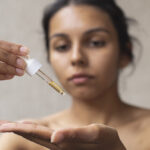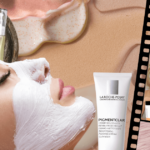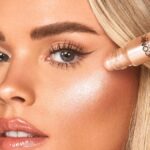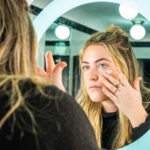Unilever is a multinational consumer goods company that owns a range of popular brands, including Dove, Tatcha, and Hourglass Cosmetics. Since the 1950s, Unilever has been at the forefront of using machine learning in the development of its products. Today, it is taking this even further, by developing robotics and artificial intelligence (AI) for use in product testing and development.
Unilever’s beauty and wellbeing arm represents 20% of the company’s annual revenue, with sales of $13.3 billion in 2022. To maintain its competitive edge, the company has invested in a 120,000-square-foot Materials Innovation Factory (MIF), located in Liverpool, U.K. The facility is staffed by over 250 researchers, who use robots and AI to test and develop Unilever’s products.
By using this technology, Unilever has been able to develop products that are more effective and efficient. In 2022, products that were developed using MIF technologies drove one-third of its tech-derived product sales. These included the Dove Intensive Repair Shampoo and Conditioner, the Living Proof Perfect Hair Day Dry Shampoo, and the Hourglass Cosmetics Red 0 Lipstick.
The robots used in Unilever’s labs all have celebrity-inspired names such as Ariana, Shirley, and Gwen. Ariana is a hairbrush equipped with sensors for force, temperature, and sound. Unilever used it in the development of the Dove Intensive Repair Conditioner to test its ability to detangle hair. Shirley, meanwhile, is a stationary robot that washes hair to gauge the user experience and performance of shampoo and conditioner products by Tresemmé, another Unilever brand. Gwen can test up to 96 tubes of Unilever products in 24 hours and is used to test and perfect products’ foam volume and density through a process that incorporates water.
Using robots in a lab setting has many benefits. They are able to run through the night without experiencing injury due to repetitive tasks. What’s more, they allow for the manipulation of humidity and agitation, as well as speed and force, allowing for thorough trials and experimentation. Using AI, the data points they provide can be cross-referenced between experiments, increasing the potential for new discoveries and insights.
According to Dr. Sam Samaras, global vp of science and technology in Unilever’s beauty and wellness division, “We now use AI everywhere. We use AI in our manufacturing plants to make the processes we run more efficient. We also use it to understand the input we get through consumer groups, through active listening, and social media.” Unilever is investing in robotics, AI, and quantum computing, seeing them as key to the next stage of beauty innovation.
Unilever is currently testing three collaborative robots, or cobots, in its Liverpool lab. “The same way that we took the repetitive work of hair washing down to a robot, the cobots will be a more flexible robotic solution versus a fixed robotic solution,” said Dr. Samaras. The company is also bringing in more stationary robots and plans to incorporate quantum computing when the technology is available for businesses. Quantum computing is an area of computer science that allows for quicker, more complex machine problem-solving, compared to classic computers. It’s based on the physics concept of quantum theory.
Using robots and AI for data allows the company’s worldwide labs to monitor each other’s progress using Microsoft lenses or digital camera feeds. “They’re great for efficiencies and cutting out menial tasks,” said Dr. Samaras. “But what really gets me excited is that I get to learn stuff that, 10 years ago, we couldn’t have learned.”
In summary, Unilever has been using machine learning since the 1950s to develop its products. Today, it is taking this further by incorporating robotics and AI into its product testing and development. By doing this, Unilever hopes to maintain its competitive edge and develop products that are more effective and efficient.











